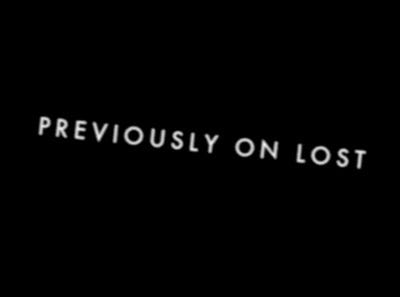"Previously on Math Class"
Watch two teachers start math class like a TV show.
You saw it more and more as television shows evolved from self-contained episodes into stories that sprawled over multiple episodes.
“Previously on [TV Show],” says the announcer in a flashback at the start of the show, followed by excerpts from previous episodes.
Those flashbacks are, psychologically speaking, an attempt to take our “inert knowledge” of the show and activate it, making that knowledge available for new stories. The flashbacks remind us of a character’s nature because we are about to learn something new and different about that nature. We are reminded of events that happened in a particular place because we are about to see new and different events in that place.
Paul Silvia’s research found that interest is generated by situations that are both novel and familiar. The flashback generates familiarity and the new episode generates novelty.
“Previously on math class.”
It is common in many classes for teachers to write an objective on the board and say it out loud.
Today we will learn how to multiply positive and negative integers together.
Today we will learn how to solve one variable equations using hangar diagrams.
This style of lesson opener introduces what is novel about the day but not what is familiar. It emphasizes what is new, but not how it is different from what came before. It lacks a flashback. Drawing those connections, highlighting the limitations of the old in order to create a need for and a connection to the new, is essential work for teachers.
Here is a short video of two teachers starting their lessons like storytellers. One teacher is me, teaching Floating in Groups to seventh graders in Oakland, CA; the other, by permission, is San Diego educator Gen Esmende, teaching Balancing Equations to seventh graders in San Diego, CA.
Both of us are teaching from Desmos Math. Without coordinating, both of us spend thirty seconds at the start of the lesson in exactly the same way: trying to turn our lessons into stories. In both classes, you’ll then see students talking and drawing connections, activating inert knowledge that will be useful later.
Cognitive psychologists have called stories a “psychologically privileged” form of information–the square peg for our brain’s square hole. So I’m always excited to steal the lessons of effective storytellers and apply them to our classes. “Previously on math class,” is one of those lessons I think about every day I’m in the classroom.
What Else?
I remember exactly who I was and where I was when Mr. Bishop put this one on the board.
If you teach secondary students who think math class is about how quickly and accurately you can perform operations, this problem will help them understand math as conceptual and elegant. I think I had expanded all the way to, like, (x-f), resulting in a messy sixth degree polynomial, before I decided the problem would have to crack with careful thought rather than brute force.



So useful and inspiring to plan for! Validating for those of us that have tried something aiming in this direction but without such good models to watch. Thank you both for sharing your students and your work with students.